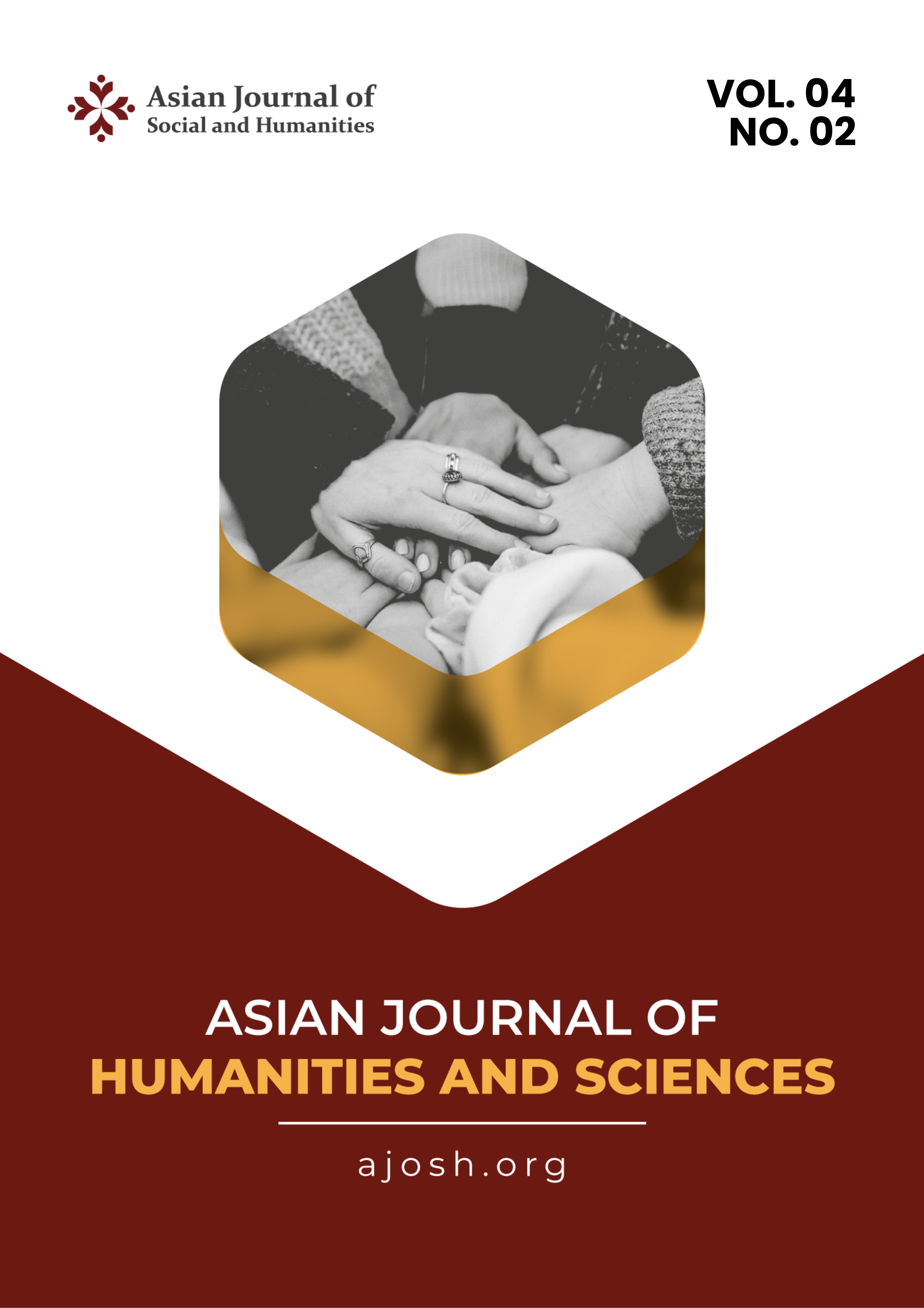A Global Ethical Framework and Islamic Principles in Sustainable Natural Resource Management
DOI:
https://doi.org/10.59888/y4zj4z39Keywords:
Natural Resources, , Sustainable, , Framework, , Global Ethic, IslamAbstract
Natural resources are fundamental assets for supporting human life and ecosystem sustainability. However, irresponsible exploitation has led to environmental degradation, resource scarcity, and climate change, necessitating ethical and sustainable management frameworks. This study aims to analyze the alignment between global ethical frameworks—including the IUCN Natural Resource Governance Framework (NRGF), Environmental Management System (EMS), The Earth Charter, Environmental, Social, and Governance (ESG), and Sustainable Development Goals (SDGs)—and Islamic principles in sustainable natural resource management. Using a descriptive-comparative qualitative approach, this research conducts a thematic analysis of primary Islamic sources (Qur’an and Hadith) and global framework documents. Data were analyzed to identify conceptual correlations and integrative potential between the two systems. The study reveals significant alignment between global ethical frameworks and Islamic principles, particularly in concepts of sustainability, justice (Al-’Adl), balance (Mizan), and prohibition of waste (Israf). Key Islamic principles such as trusteeship (khalifah) and accountability before God resonate strongly with global sustainability goals. The research also proposes an Islamic Pentahelix collaboration model involving government, academia, business, community, and media to implement these integrated principles. Islamic teachings offer a comprehensive ethical foundation that aligns with and can enrich global sustainability efforts. The integration of these principles through collaborative models like the Islamic Pentahelix can enhance the effectiveness and moral grounding of natural resource management policies worldwide.
References
Abdelrahman, M. A. E. (2023). An overview of land degradation, desertification and sustainable land management using GIS and remote sensing applications. Journal of Landscape Ecology. https://doi.org/10.1007/s12210-023-01155-3
Ayu, R. K., & Ramon, F. (2021). Pengelolaan Sumber Daya Berkelanjutan dalam Perspektif Hukum Islam. Wasaka Hukum, 9(1), 231-244.
Azzahra, S., & Maysithoh, S. (2024). Peran Muslim dalam pelestarian lingkungan: Ajaran dan praktik. At-Thullab: Jurnal Mahasiswa Studi Islam, 6(1), 1568–1579. https://doi.org/10.20885/tullab.vol6.iss1.art8
D’amato, D., Bartkowski, B., & Droste, N. (2020). Reviewing the interface of bioeconomy and ecosystem service research. Ambio, 49(12), 1878–1896.
Deeksha, & Shukla, A. K. (2022). Ecosystem services: A systematic literature review and future dimension in freshwater ecosystems. Applied Sciences, 12(17), 8518. https://doi.org/10.3390/app12178518
Djaelani, M. S. (2011). Etika lingkungan dalam pembangunan berkelanjutan. Jurnal Ilmiah Econosains, 9(1), 21-27.
Erdogan, S. (2024). Linking natural resources and environmental sustainability: A panel data approach based on the load capacity curve hypothesis. Sustainable Development, 32(4), 3182–3194. https://doi.org/10.1002/sd.2836
Fadli, Z., & Sarjan, M. (2024). Etika pengelolaan sumber daya alam berkelanjutan dalam perspektif Islam. Lambda: Jurnal Ilmiah Pendidikan MIPA dan Aplikasinya, 4(1), 44–48. https://doi.org/10.58218/lambda.v4i1.858
Hallaj, Z., Bijani, M., Karamidehkordi, E., Yousefpour, R., & Yousefzadeh, H. (2024). Forest land use change effects on biodiversity ecosystem services and human well-being: A systematic analysis. Environmental and Sustainability Indicators, 23, 100445.
Hestianah, S., Mafulla, D., & Dwiyanto, D. A. (2022). Bisnis, Lingkungan Hidup Dan Etikaindustri. Dar El-Falah, 2(1).
Hijjah, H. D., & Jaharuddin, J. (2024). Penerapan Prinsip Ekonomi Islam dalam Transformasi Ekonomi Berkelanjutan: Analisis Literatur. J-CEKI: Jurnal Cendekia Ilmiah, 3(5), 4541-4553.
Januaripin, M., Kartimi, K., & Rahtikawati, Y. (2024). Membangun Etika Ekologi Berbasis Nilai-Nilai Islam. Journal on Education, 7(01), 7350-7361.
Romizan, M. R. K., Ananti, A. T., & Hidayatullah, A. F. (2024). Pengelolaan Sumber Daya Alam Dengan Pendekatan Ekosofi Islam. Journal in Teaching and Education Area, 1(3), 362-372.
Niza Utami, Saragih, R. F., Daulay, M., Maulana, M. D., & Ramadani, P. (2023). Pembangunan berkelanjutan: Pengelolaan sumber daya alam berbasis pembangunan sosial dan ekonomi Indonesia. Journal of Management and Social Sciences, 2(1), 46–59. https://doi.org/10.55606/jimas.v2i1.143
Sandryani, M. H., & Anjani, H. (2022). Penerapan Etika Dalam Menjaga Kelestarian Lingkungan. Nusantara: Jurnal Pendidikan, Seni, Sains dan Sosial Humaniora, 1(01).
Siregar, D. R., Aqilla, A. R., Syah, N., & Catri, I. (n.d.). Etika lingkungan dalam pembangunan.
Ulfah, A., & Cahyadi, A. (2025). Keberlanjutan Dan Teknologi Hijau Dalam Perspektif Islam. Educational Journal: General and Specific Research, 5(1), 131-151.
Wahanisa, R., & Adiyatma, S. E. (2021). Konsepsi Asas Kelestarian Dan Keberlanjutan Dalam Perlindungan Dan Pengelolaan Lingkungan Hidup Dalam Nilai Pancasila. Bina Hukum Lingkungan, 6(1), 93-118.
Wijaya, L. M., & Fasa, M. I. (2022). Etika Pengelolaan Sumber Daya Alam Berkelanjutan dalam Perspektif Islam. Journal of Islamic Economics and Philanthropy, 4(4), 125-138.
Windi Yuni Andini, Aisyah, A. R., Syarif, S. H., Shafiyah, S. M. A., & Afif, A. F. R. (2024). Integrasi prinsip ekonomi Islam dalam penerapan ekonomi hijau di Indonesia: Menuju pembangunan berkelanjutan. Journal of Economics and Business, 2(2), 247–254. https://doi.org/10.61994/econis.v2i2.499
Downloads
Published
Issue
Section
License
Copyright (c) 2025 Prayitno Prayitno , Raudhatul Hasanah Lie

This work is licensed under a Creative Commons Attribution-ShareAlike 4.0 International License.
Authors who publish with this journal agree to the following terms:
- Authors retain copyright and grant the journal right of first publication with the work simultaneously licensed under a Creative Commons Attribution-ShareAlike 4.0 International. that allows others to share the work with an acknowledgement of the work's authorship and initial publication in this journal.
- Authors are able to enter into separate, additional contractual arrangements for the non-exclusive distribution of the journal's published version of the work (e.g., post it to an institutional repository or publish it in a book), with an acknowledgement of its initial publication in this journal.
- Authors are permitted and encouraged to post their work online (e.g., in institutional repositories or on their website) prior to and during the submission process, as it can lead to productive exchanges, as well as earlier and greater citation of published work.










